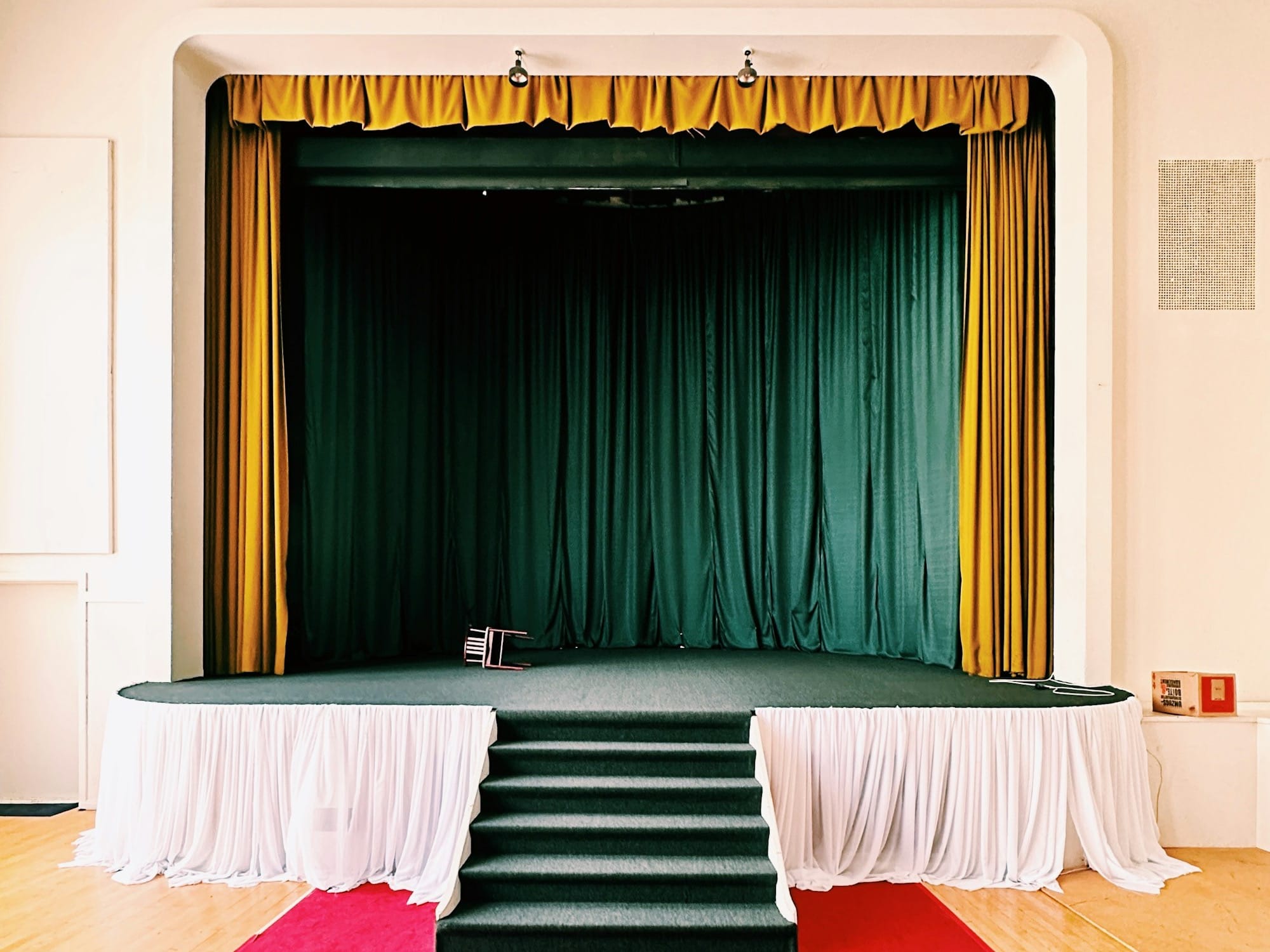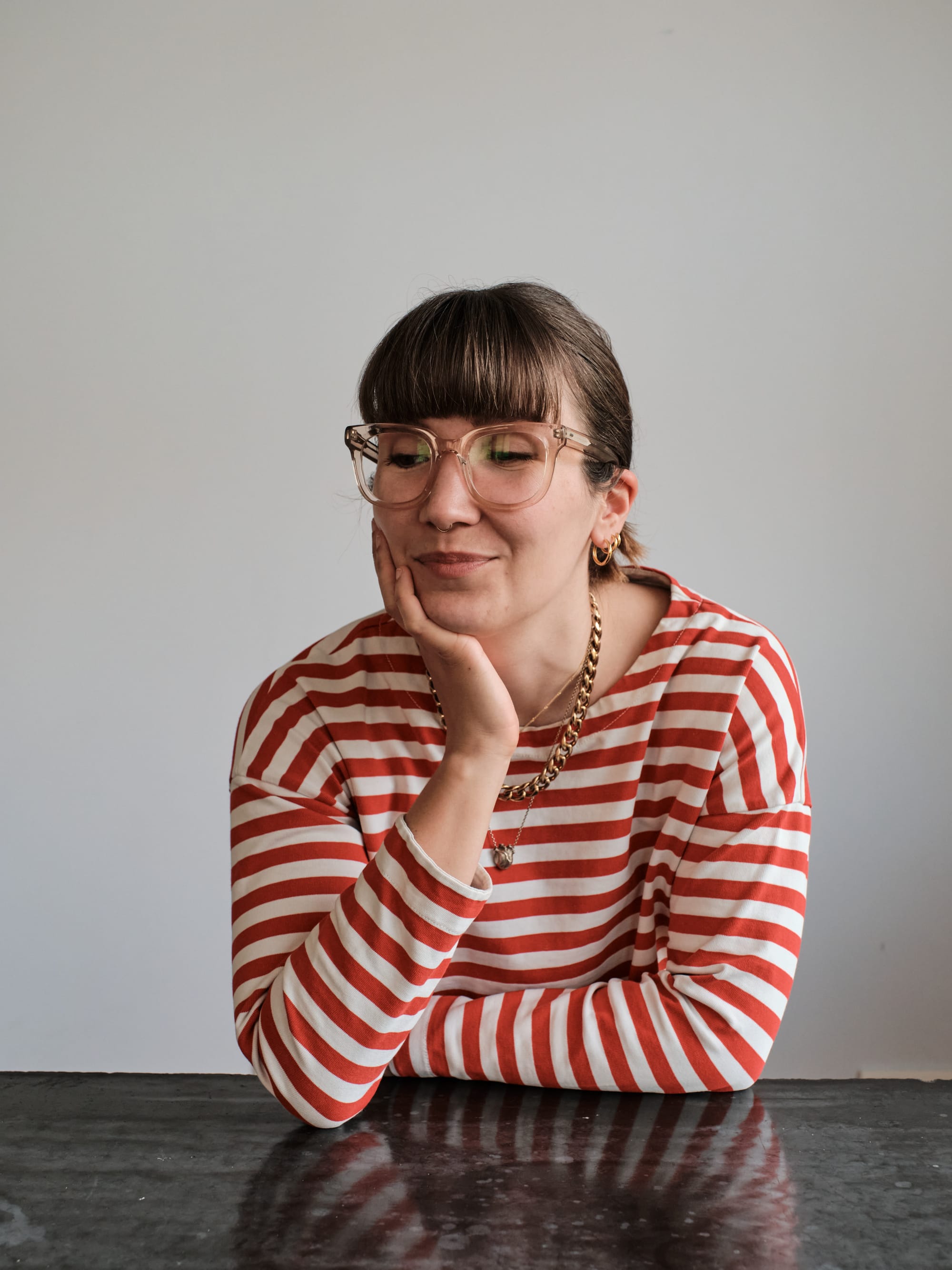Practise in public
there are things you can't learn alone

I studied music in high school, where some of us were quite ambitious. We'd heard countless times that practice makes perfect – and took it to heart. We locked ourselves in those little music rooms, all of them equipped with paper-thin walls, a battered piano, and fluorescent lighting. I think we believed that just making enough effort would sooner or later reveal us as the dazzling performers we were destined to be.
Then one day, a strict-but-fair teacher reframed it for us:
You get good at what you practise.
The difference may seem insignificant, but it stuck. If you practise checking your phone, you get good at checking your phone. If you practise playing bass in your basement, you get good at playing bass in your basement. And if you practise sharing your work, you get good at sharing your work.
You don't actually know what good is until you've tried
As a human with excellent taste, you probably have high standards for what you create. And might not like showing anything you're not 100% satisfied with.
The trouble is: you don’t actually know what “good” means to your audience until you put something out there. They might value something completely different than you expected. Maybe they’re into your science videos because you’re a hot, funny mess — while you fussed over not looking sandblasted. Maybe that tired, strained take is what carried the emotion.
When you know what they like – you can lean in and make that even better. Or decide that this was the wrong audience entirely, and take your creations elsewhere.
Practising in front of an audience beats the mirror every time.
On stage, everything changes — the light, the sound, the pressure. Strangers on the internet can and will respond in ways you never saw coming. In this newsletter, I'm still figuring out what «good» means to you, which is why I'm always asking for your feedback.
You can learn, practise, and prepare for every eventuality — and it will help, some. But it can never replace the real deal.
Yes it can be awful to show where you are when it's not where you aim to be (yet).
The longer you've been out of school, the less you've probably been forced to do that lately. The more grown-up you become, the more you get to avoid stuff you don’t master. The less you need to take other people's opinions into account.
And if you're underrepresented, chances are you have a lot more nerves about being seen as a work in progress than your peers. Visibility has a cost. And it’s not equally distributed.
It’s a humbling experience, putting yourself out there. But you don't have to do it alone, and it does get easier with practise.
You don't have to lower your standards
If you want to get better, feedback is the way. Showing your work to other people, be it someone whose opinion you value or strangers on the internet. Some feedback is direct and interactive, some is just the open rate of this newsletter.
It can be nerve-racking. Even excruciating. But letting others see your work can also be fun, inspiring, and help you grow.
Understand that other creators know how hard it is to make something, anything, and are cheering for just about everyone else who is going for it. Know that most people with deep interest and expert knowledge love to share it if you ask. Keep in mind that those who prefer to pick others apart are often creatively constipated and nothing you need to worry about.
So — what can you share today that isn’t ready?
A paragraph from your novel? An unedited picture? Half-knitted hat?
Hit reply and send it my way. Or even better – tag me on Instagram!

Nora Mihle Asklund is the writer, musician and ex-Patreon lead behind Break Something Studio – a kitchen party on the internet for people who make stuff. She helps creators stay weird, brave and stubborn enough to keep going. Find more of her thoughts and experiments at breaksomething.studio or on Instagram @breaksomethingstudio.

